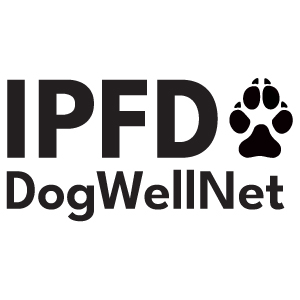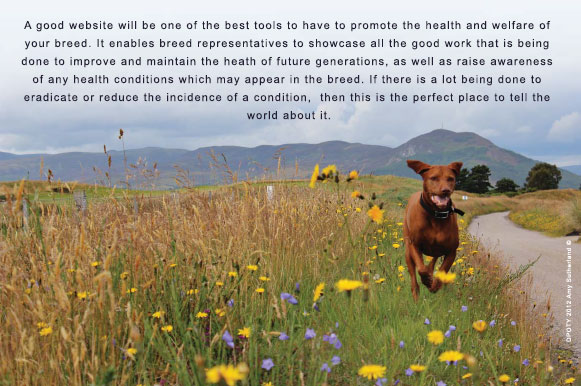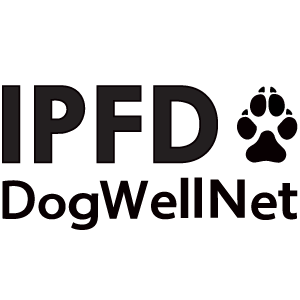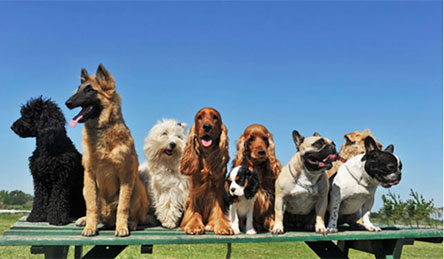Breed-Specific Programs | Country
9 articles in this category
-
 2020 Toolkit h ttps://www.thekennelclub.org.uk/health-and-dog-care/health/breed-health-co-ordinators/breed-health-improvement-strategy-toolkit/ For Clubs see: UK: The-Kennel-Club-Breed-Health-Improvement-Strategy (internal - pdf) bhcbreedhealthimpstrat(1).pdf The Kennel Club's comprehensive resource to help guide kennel clubs in creating a health improvement strategy for their breed. Older Health Survey document - example questions: examplequestion-
2020 Toolkit h ttps://www.thekennelclub.org.uk/health-and-dog-care/health/breed-health-co-ordinators/breed-health-improvement-strategy-toolkit/ For Clubs see: UK: The-Kennel-Club-Breed-Health-Improvement-Strategy (internal - pdf) bhcbreedhealthimpstrat(1).pdf The Kennel Club's comprehensive resource to help guide kennel clubs in creating a health improvement strategy for their breed. Older Health Survey document - example questions: examplequestion-- Many national kennel clubs, other cynological organizations (e.g. breed clubs) have developed guidelines, approaches or programs to:
- describe and evaluate the health of specific breeds
- outline guidelines or regulations for screening tests or other assessments on potential breeding dogs
- raise awareness about issues in a given breed.
These programs take different forms in different countries. In this section we will provide information on various approaches and programs and direct you to online resources. For general guidelines (not breed-specific) see also: country-specific General Breeding and Ethical Guidelines.
Countries: Austria: Austrian Kennel Club - Response to Animal Welfare Legislation
The Austrian Kennel Club ( Österreichische Kynologenverband - ÖKV ) initiated a project, "Konterqual", to address legislative concerns. Sharing work like this can help to inform other kennel clubs and countries dealing with similar issues. In addition to presenting the facts and outcomes, it is so helpful to be able to see the process, to follow what steps were taken. Personal experiences, what works, what doesn't ... all these help others. We look forward to further information from Austria on developments and outcomes of this program.
Austria: Austrian Kennel Club - Response to Animal Welfare Legislation
The Austrian Kennel Club ( Österreichische Kynologenverband - ÖKV ) initiated a project, "Konterqual", to address legislative concerns. Sharing work like this can help to inform other kennel clubs and countries dealing with similar issues. In addition to presenting the facts and outcomes, it is so helpful to be able to see the process, to follow what steps were taken. Personal experiences, what works, what doesn't ... all these help others. We look forward to further information from Austria on developments and outcomes of this program.
 Nordic Kennel Union: The Nordic Kennel Union is a cooperative organisation for the Kennel Clubs of Sweden, Norway, Denmark, Finland and Iceland. Below we list efforts made to address exaggerations in breeds through the NKU country's BSI. There are six basic criteria defining if a breed should be listed as a high profile breed. Breeds which fulfill these and are thus listed are particularly paid attention to at dog show judging by the judge.
About...
https://dogwellnet.com/content/ipfd/more-on-our-partners-and-collaborators/about-the-nordic-kennel-union-r500/
Sweden: Svenska Kennelklubben (The Swedish Kennel Club)
Nordic Kennel Union: The Nordic Kennel Union is a cooperative organisation for the Kennel Clubs of Sweden, Norway, Denmark, Finland and Iceland. Below we list efforts made to address exaggerations in breeds through the NKU country's BSI. There are six basic criteria defining if a breed should be listed as a high profile breed. Breeds which fulfill these and are thus listed are particularly paid attention to at dog show judging by the judge.
About...
https://dogwellnet.com/content/ipfd/more-on-our-partners-and-collaborators/about-the-nordic-kennel-union-r500/
Sweden: Svenska Kennelklubben (The Swedish Kennel Club)
- Breed-Specific Breeding Strategy Program
- For Judges see:
Special Breed Specific Instructions (BSI) regarding exaggerations in pedigree dogs: A health protective project initiated by the Swedish Kennel Club.
-
Breed Specific Strategies
BSI - Presentation DHW, Dortmund Germany - Göran Bodegård SKK
"The BSI program has been routinely applied in Sweden from 2009 – and at present generated more than ten thousand reports. From 2012 the program is embraced and worked through by all the Nordic countries and the latest edition ( NKU BSI 2014) is founded on the compound experience in the Nordic countries regarding the identification of areas of risk in a selected number of high profile breeds during the last decade. The structure of the NKU BSI is thus actually an inventory which allows for a continuous follow up and dynamic revisions of the BSI."
"Genetic health programmes are one of the tools used by the SKK (the Swedish Kennel Club) to manage hereditary disease. The SKK implemented the use of screening programmes to improve health in Swedish dogs more than 30 years ago. The first programmes concerned hip dysplasia and hereditary eye diseases. More recently, programmes for other heritable conditions, such as elbow dysplasia, patellar luxation and heart disease have been developed. Health programmes are based on breed-specific needs and have been introduced on request from and in consultation with the breed clubs." Finland: Breed Specific Instructions (BSI): Finland 2015 The Finnish Kennel Club has published new Breed-Specific Instructions for dog show judges. The instructions were drafted with the purpose of steering dog show judges to pay closer attention to exaggerated breed types. The new instructions entered into force on 1 June 2015. The Finnish Kennel Club's breeding strategy applies to all breeds. It outlines the main principles and objectives in breeding, and aims to improve genetic health of dogs.
- Dog health
- Official Health Examinations
- Finnish Kennel Club: General Breeding Strategy
-
DWN article: Finnish Kennel Club: General Breeding Strategy
The UK: The Kennel Club Links to The Kennel Club's resources were updated on 10-2-2020. What the Kennel Club does for Dog Health
This older health PDF report health.pdfencompasses much of the work undertaken in recent years and includes detailed sections on:
What the Kennel Club does for Dog Health
This older health PDF report health.pdfencompasses much of the work undertaken in recent years and includes detailed sections on:
- How The Kennel Club promotes health through education
- Initiatives designed to improve health awareness in dog shows
- How The Kennel Club promotes and progresses scientific research
- How The Kennel Club encourages responsible breeding of healthy dogs.
- breed-health-improvement-strategy-toolkit
- what-we-do-for-dog-health
- Breed Watch : The info graphic below provides Breed Watch information.
- Also see: High Profile Breeds Veterinary Health Checks for Best of Breed winners.
- BREED HEALTH COORDINATORS
- Breed Health & Conservation Plan -- The Kennel Club
To learn more about the Breed Health and Conservation Project see...
15 December 2018 - VET RECORD... The UK:
Being a breed health coordinator
Liz Branscombe describes what the role is and how it can help improve breed health for pedigree dogs,,, Perspective as well as links to DBRG's and The Kennel Club's resources for owners, BHC's, researchers and veterinarians."Breed Health Coordinators are individuals working on behalf of breed clubs and councils who are advocates for the health and welfare of their chosen breed." If you have a health related questions concerning a particular breed, we recommend contacting the Breed Health Coordinator through the your local Breed club, a list of which is available via the "the Kennel Club's Breeds A to Z
 TOOLKITS FOR BREED HEALTH COORDINATORS
TOOLKITS FOR BREED HEALTH COORDINATORS
-
Website Content Toolkit
- Internal - pre -2020 pdf website_content_toolkit.pdf
-
Website Enhancement Toolkit
- (internal - pre-2020 pdf website_enhancement_toolkit.pdf
-
BREED HEALTH IMPROVEMENT STRATEGY: A STEP-BY-STEP GUIDE
- (internal - pre-2020 pdf) bhcbreedhealthimpstrat.pdf
- 0 comments
- 6,309 views
-
 As to issues in pedigreed dogs - Points to ponder: In the USA, a minority of pedigreed, purebred dogs come from breeders who are part of the dog fancy (i.e. those participating in events like dog shows). A health-conscious approach to breeding dogs is stressed and supported by many programs at our partner kennel clubs, e.g. Breed Watch in the UK, Breed-Specific Breeding Strategy programs in Finland, Sweden and Norway, innovative health strategies by breed clubs (e.g. Germ
As to issues in pedigreed dogs - Points to ponder: In the USA, a minority of pedigreed, purebred dogs come from breeders who are part of the dog fancy (i.e. those participating in events like dog shows). A health-conscious approach to breeding dogs is stressed and supported by many programs at our partner kennel clubs, e.g. Breed Watch in the UK, Breed-Specific Breeding Strategy programs in Finland, Sweden and Norway, innovative health strategies by breed clubs (e.g. Germ- Focus: Health issues in show dogs and what is being done about them - with specific examples of Swedish data With Westminster starting and Crufts coming soon, people will see many beautiful and healthy dogs in the ring. However, issues will be raised in the media about health problems in pedigreed dogs. Here are some things to think about.



- 0 comments
- 4,070 views
-
 The document, known as Rasspecifika Avelsstrategier /Breed-Specific Breeding Strategies), or RAS, is the result of the work of the various breed clubs. It contains the history of the breeds, a description of the present situation, and goals and strategies for the future. The idea is that the document should constitute an overall plan for the breed and act as a guideline to breeders. At present, most breed clubs (more than 300 breeds) have developed and submitted a breeding strategy to the SKK. T
The document, known as Rasspecifika Avelsstrategier /Breed-Specific Breeding Strategies), or RAS, is the result of the work of the various breed clubs. It contains the history of the breeds, a description of the present situation, and goals and strategies for the future. The idea is that the document should constitute an overall plan for the breed and act as a guideline to breeders. At present, most breed clubs (more than 300 breeds) have developed and submitted a breeding strategy to the SKK. T- Sweden In 2001, the Swedish Kennel Club (SKK) initiated a project which is quite unique to the canine world. The task was to create a breed-specific breeding strategy for every breed of dog in Sweden, based on evidence and information gathered from a range of sources. Hence, the breeding plan should be tailored to the conditions of the individual breed and consider all aspects relevant in the breeding goal for that breed, i.e., physical and mental health as well as population structure and genetic variation.
- 0 comments
- 3,542 views
-
 A Breed Health Improvement Strategy is much broader than a plan for addressing a particular health issue (e.g. a single disease or condition) in a breed." See an overview of subject matter... Introduction to health strategies What would a "good" breed be doing? Four themes for a breed health strategy Lead Plan Engage Improve Five steps to develop your strategy Appendices
A Breed Health Improvement Strategy is much broader than a plan for addressing a particular health issue (e.g. a single disease or condition) in a breed." See an overview of subject matter... Introduction to health strategies What would a "good" breed be doing? Four themes for a breed health strategy Lead Plan Engage Improve Five steps to develop your strategy Appendices- The Kennel Club has a comprehensive resource to help guide breed clubs and health coordinators to create a health improvement strategy for their breed. It is available online: 2020 - Breed Health Improvement Strategy Toolkit The recently updated Toolkit page content has been enhanced: Main author: Ian Seath; The project team: Judith Ashworth, Sheila Atter, Archie Bryden, Brian Hill, Dorothy McIntyre, Shula Shipton and Marion Wilks Health improvement strategies have long been a focus of The Kennel Club. For historical documentation see the pre-2020: The-Kennel-Club-Breed-Health-Improvement-Strategy: -A-Step-by-Step-Guide as PDF - bhcbreedhealthimpstrat(2).pdf
- 0 comments
- 2,827 views
-
 Excerpt... "The Bulldog has a great popularity. • In 2015: the bulldog is the 5th favourite breed in the USA = 20000 puppies were registered in one year. • 5600 puppies were registered by the Kennel Club in the UK during the same year • In France, more than 2000 puppies were born every year in the last several years." With the popularity of English Bulldogs throughout the world, the CBA takes the approach that "breed clubs have the responsibility of the whole breed
Excerpt... "The Bulldog has a great popularity. • In 2015: the bulldog is the 5th favourite breed in the USA = 20000 puppies were registered in one year. • 5600 puppies were registered by the Kennel Club in the UK during the same year • In France, more than 2000 puppies were born every year in the last several years." With the popularity of English Bulldogs throughout the world, the CBA takes the approach that "breed clubs have the responsibility of the whole breed- The English Bulldog Club in France shares their breed management strategies with the DWN community. The role of a breed club and approaches to breed management for a popular dog breed are covered in this document. A 'state of mind' exists in among the members and leadership of the Club du Bulldog Anglais to ensure the breed's health and welfare are addressed. See below for a link to The Club du Bulldog Anglais Breed Management Strategy Overview. Our thanks goes to Hélène Denis, for sharing this information with the DWN community.

- 0 comments
- 4,012 views
-
 Besides physical health, SKK has developed programmes with respect to mental health and management of genetic variation. All results, positive as well as negative, of tests carried out on dogs of breeds included in the various programmes are registered with the SKK and the results are accessible to the public through the SKK webpage. For more information (in Swedish) on the various genetic health programmes managed by the SKK, please visit www.skk.se, and articles like Breeding Dogs in Sweden
Besides physical health, SKK has developed programmes with respect to mental health and management of genetic variation. All results, positive as well as negative, of tests carried out on dogs of breeds included in the various programmes are registered with the SKK and the results are accessible to the public through the SKK webpage. For more information (in Swedish) on the various genetic health programmes managed by the SKK, please visit www.skk.se, and articles like Breeding Dogs in Sweden
Genetic health programmes are one of the tools used by the SKK (the Swedish Kennel Club) to manage hereditary disease. The SKK implemented the use of screening programmes to improve health in Swedish dogs more than 30 years ago. The first programmes concerned hip dysplasia and hereditary eye diseases. More recently, programmes for other heritable conditions, such as elbow dysplasia, patellar luxation and heart disease have been developed. Health programmes are based on breed-specific needs and have been introduced on request from and in consultation with the breed clubs. An increasing number of genes underlying health issues in dogs are being revealed by advances in molecular genetics research. In addition to health programmes based on phenotypic information, the SKK records findings from genetic tests for several gene mutations. The availability of genetic tests makes it possible to accurately determine the genotype of an individual dog with respect to a specific disease, enabling a more subtle management of breeding programmes to decrease the frequency of a particular disease gene without unnecessary reduction of genetic variation.
- 0 comments
- 3,853 views
-
 excerpt... "The snub-nosed are currently high up on the list of favourite dogs... At the VDH even French Bulldogs & Co have to clear high hurdles for breeding. By means of a stress test, for example, they have to prove that they really are top runners. Journalist Philip Alsen and his camera team paid a visit to the International Club for French Bulldogs (IKFB) to witness a breeding soundness examination." Article/Video Link (English) - http://www.vdh.de/en/news/artikel
excerpt... "The snub-nosed are currently high up on the list of favourite dogs... At the VDH even French Bulldogs & Co have to clear high hurdles for breeding. By means of a stress test, for example, they have to prove that they really are top runners. Journalist Philip Alsen and his camera team paid a visit to the International Club for French Bulldogs (IKFB) to witness a breeding soundness examination." Article/Video Link (English) - http://www.vdh.de/en/news/artikel- Internationaler Klub für Französische Bulldoggen e.V. (IKFB) feature article and video; breeding soundness tests - French Bulldogs
- 0 comments
- 8,091 views
-
 To read the interview in which the Internationaler Klub für Französische Bulldoggen e.V. 's (IKFB) regulations and the breeding test utilized by the German French Bulldog Club is discussed see: We Are the Nerds
To read the interview in which the Internationaler Klub für Französische Bulldoggen e.V. 's (IKFB) regulations and the breeding test utilized by the German French Bulldog Club is discussed see: We Are the Nerds- Dr. Anne Posthoff, the president of the German International Club for French Bulldogs, explains why the rules for breeding French Bulldogs in Germany are amongst the strictest in the world.
- 0 comments
- 7,751 views
-
 English Version French Version LE CLUB DU BOULEDOGUE FRANÇAIS -- http://www.cbf-asso.org/ Thanks go to Elyse Waget, Présidente du Club du Bouledogue Français and Anne Mary Chimion from Société Centrale Canine, Relations Internationales for sharing this article with the DWN Community!
English Version French Version LE CLUB DU BOULEDOGUE FRANÇAIS -- http://www.cbf-asso.org/ Thanks go to Elyse Waget, Présidente du Club du Bouledogue Français and Anne Mary Chimion from Société Centrale Canine, Relations Internationales for sharing this article with the DWN Community!- Club du Bouledogue Français
CBF ACTION FOR THE HEALTH AND WELL-BEING OF THE FRENCH BULLDOG
CURRENT SITUATION AND PROSPECTS
See the article prepared for DogWellNet on the work of the French Bulldog Club for maintaining the health and well-being of the breed.
This article was validated by the committee of the association at its meeting of November 27, 2016.
- 0 comments
- 4,037 views


